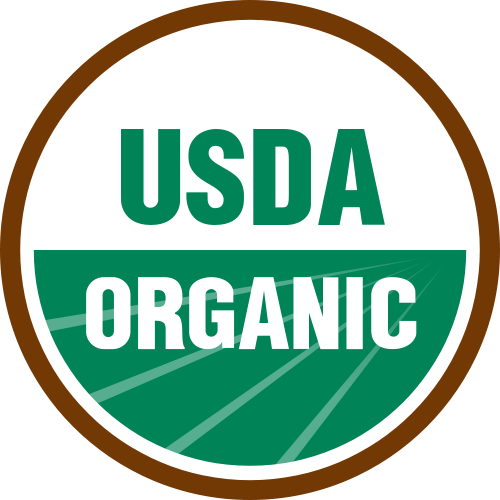Have you ever wondered what it really means when something is “certified organic”? It is one of those things that we all think we are pretty sure about, but have you ever researched it? So, we took on the task of researching and here’s what we found out.
What does “Certified Organic” really mean?
In its most simple terms, “certified organic” is a consumer protection regulated by the U.S. Department of Agriculture (USDA). More specifically, when something holds the certified organic label, it means that the product has been produced and/or processed in compliance with the USDA’s National Organic Program (NOP) – standards. These standards went into effect in April 2001.
Further, certified organic means that with:
- Vegetables and Fruit: no irradiation, sewage sludge, synthetic fertilizers, prohibited pesticides or GMOs have been used
- Livestock: they’re fed 100% organic feed, no antibiotics or growth hormones are used, they have some access to the outdoors
- Multi-Ingredient Foods: 95% of ingredients are certified organic
The USDA works in conjunction with the National Organic Standards Board – to develop these regulations. This board is made up of consumers, environmentalists, farmers, and scientists. Current members are listed here. As you notice under the “vegetables and fruit” category above, organic produce cannot use “prohibited pesticides,” which means that there are SOME pesticides that are allowed. This board advises the USDA on which substances should be allowed and what shouldn’t. This work results in the National List of Allowed and Prohibited Substances.
How is the “Certified Organic” label obtained?
Obtaining a certified organic label can be costly and time-consuming. Many small farms do not spend the time to obtain the official label and simply say that their produce is “naturally” grown or grown in an “organic” manner. Be sure to talk to local farmers and find out how they grow their produce. Just because it doesn’t say “certified organic,” doesn’t mean it’s not organic.
To obtain certification as organic, applicants must:
- have operations inspected by a third-party agent
- continue to be inspected annually
- allow soil, water, plants and/or animal tissue to be tested
- pay certification fees that range for hundreds to thousands of dollars
Recently there has been a lot of criticism about how these regulations and standards are not strict enough. Perhaps there is some truth to this. However, it is also true that large scale regulations such as this are difficult to create, implement and maintain.

